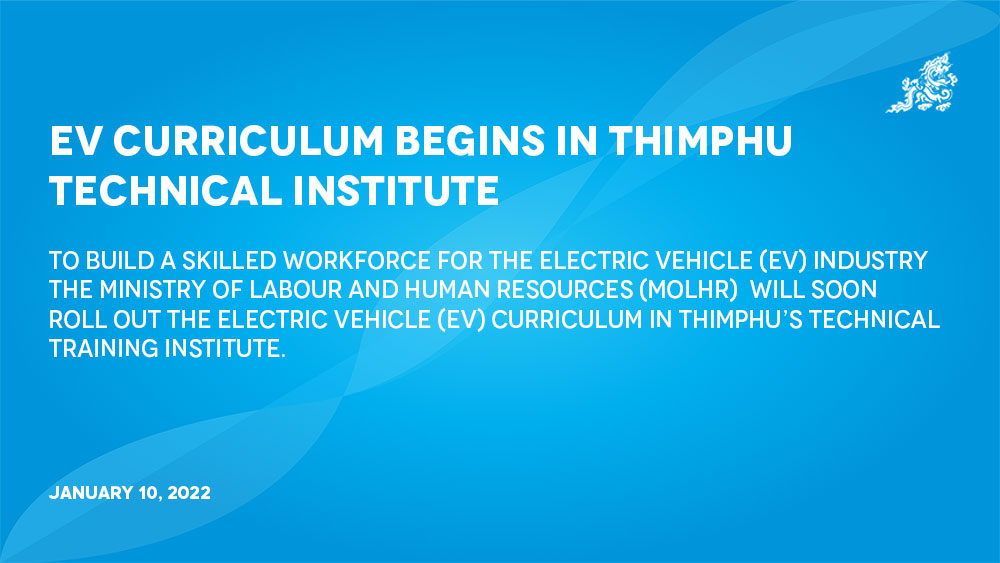Yangyel Lhaden
To build a skilled workforce for the electric vehicle (EV) industry the Ministry of Labour and Human Resources (MoLHR) will soon roll out the electric vehicle (EV) curriculum in Thimphu’s technical training institute.
According to records with Road Safety and Transport Authority (RSTA) from 97 EVs in 2016, there are 152 EVs by end of last year. There are 58 EV taxis imported through a project called ‘Bhutan Sustainable Low Emission Urban Transport System’. The project aims to replace 300 fossil fuel taxis in the country. More EVs are expected to arrive.
EV curriculum was developed by the Technical and Vocational Education and Training (TVET) Professional Services Division with the involvement of experts from EV dealers in the country and Master Trainer from Thailand, Apiwat Phanitsiriprapha.
Specialist of TVET Professional Services Division Sangay Dorji said that the curriculum in TVET programme also aimed to enhance employment opportunities for Bhutanese youth. “We consulted with EV drivers, representatives from the Prime Minister’s Office working with the EV project and EV dealers to gather their views in developing the curriculum.”
EV curriculum consists of three modules: Applying fundamentals of electrical and electronic, repair and maintenance of EV vehicles, and insulation and maintenance of EV charging station.
Currently, there are 33 EV chargers (20 direct current (DC) and 13 alternating current (AC) ) in Thimphu, Paro, Punakha, Wangdue, Haa, and Chukha. One DC charger and three AC chargers are being installed in Phuntsholing.
Work to install EV chargers in the remaining 14 dzongkhags has also started and eight DC chargers and an adequate number of AC chargers would also be installed in Thimphu given the higher concentration of EVs in the capital.
Sangay Dorji said that the potential to begin EV curriculum in other technical training institutes would also be studied.
He said that the curriculum was for trainees. “For the EV drivers, a separate course would be developed which is expected to begin within the next two months.
They would be trained in technical safe handling, responsible driving, and the use of charging stations.
The curriculum was developed by the Ministry of Labour and Human Resources under the Skills Development Plan.


